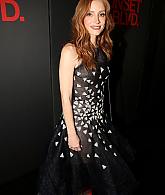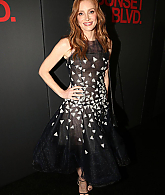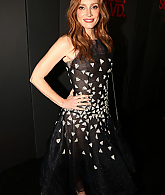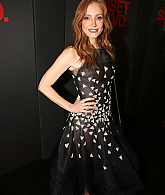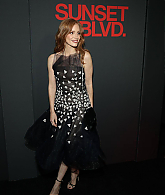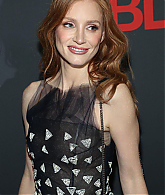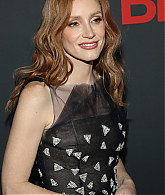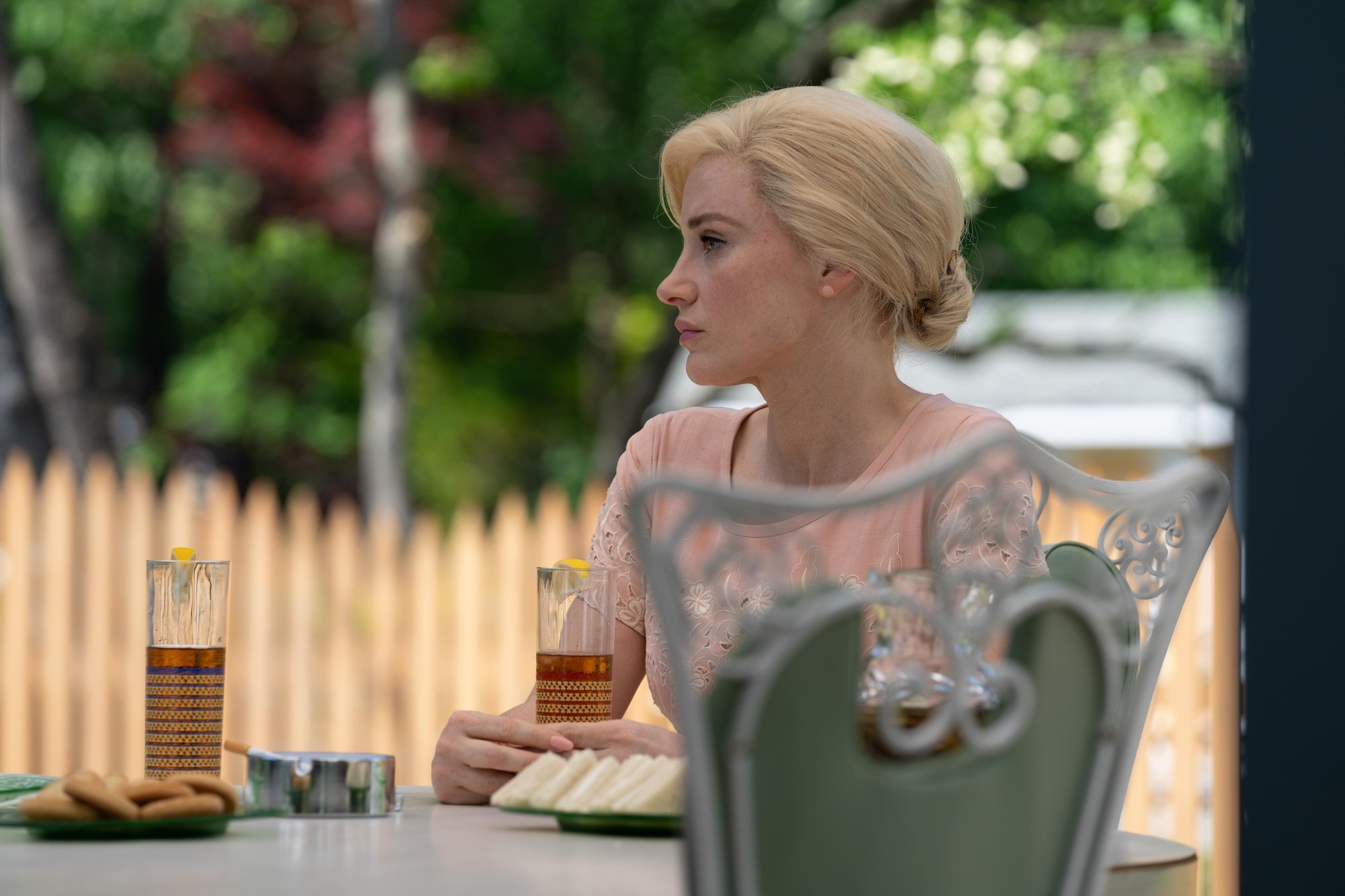 elcome to Jessica Chastain Network, your oldest and most complete resource dedicated to Jessica Chastain. You may better remember her as Molly Bloom in Molly's Game or Maya in Zero Dark Thiry. Academy Award winner for The Eyes of Tammy Faye, Jessica spans her career from big to small screen, seeing her not only in movies like The Help, The Debt, Miss Sloane, Woman Walks Ahead, The Zookeeper's Wife, The Good Nurse, she also played some iconic roles for series like Scenes from a Marriage and George & Tammy. Recently she registered a podcast series, The Space Within, and had a role in Memory and Mothers' Instinct. This site aims to keep you up-to-date with anything Mrs. Chastain with news, photos and videos. We are proudly PAPARAZZI FREE!
elcome to Jessica Chastain Network, your oldest and most complete resource dedicated to Jessica Chastain. You may better remember her as Molly Bloom in Molly's Game or Maya in Zero Dark Thiry. Academy Award winner for The Eyes of Tammy Faye, Jessica spans her career from big to small screen, seeing her not only in movies like The Help, The Debt, Miss Sloane, Woman Walks Ahead, The Zookeeper's Wife, The Good Nurse, she also played some iconic roles for series like Scenes from a Marriage and George & Tammy. Recently she registered a podcast series, The Space Within, and had a role in Memory and Mothers' Instinct. This site aims to keep you up-to-date with anything Mrs. Chastain with news, photos and videos. We are proudly PAPARAZZI FREE!

 elcome to Jessica Chastain Network, your oldest and most complete resource dedicated to Jessica Chastain. You may better remember her as Molly Bloom in Molly's Game or Maya in Zero Dark Thiry. Academy Award winner for The Eyes of Tammy Faye, Jessica spans her career from big to small screen, seeing her not only in movies like The Help, The Debt, Miss Sloane, Woman Walks Ahead, The Zookeeper's Wife, The Good Nurse, she also played some iconic roles for series like Scenes from a Marriage and George & Tammy. Recently she registered a podcast series, The Space Within, and had a role in Memory and Mothers' Instinct. This site aims to keep you up-to-date with anything Mrs. Chastain with news, photos and videos. We are proudly PAPARAZZI FREE!
elcome to Jessica Chastain Network, your oldest and most complete resource dedicated to Jessica Chastain. You may better remember her as Molly Bloom in Molly's Game or Maya in Zero Dark Thiry. Academy Award winner for The Eyes of Tammy Faye, Jessica spans her career from big to small screen, seeing her not only in movies like The Help, The Debt, Miss Sloane, Woman Walks Ahead, The Zookeeper's Wife, The Good Nurse, she also played some iconic roles for series like Scenes from a Marriage and George & Tammy. Recently she registered a podcast series, The Space Within, and had a role in Memory and Mothers' Instinct. This site aims to keep you up-to-date with anything Mrs. Chastain with news, photos and videos. We are proudly PAPARAZZI FREE!
Q&A: Jessica Chastain
Norman Wilmer
June 10, 2011
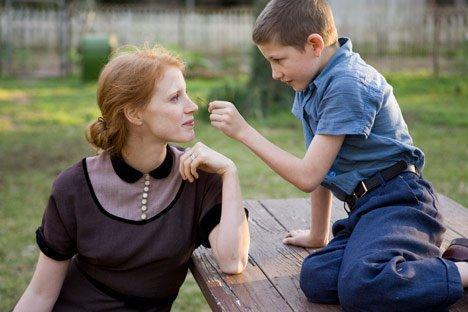
Article taken from NOW Toronto.
Terrence Malick is notoriously averse to doing press, and sending Brad Pitt on a media tour would be a logistical nightmare, so co-star Jessica Chastain has become the public face of their new film, The Tree Of Life.
Chastain has spent the weeks since the movie’s Cannes premiere (and Palme d’Or victory) traveling around doing press days and preview-screening Q&As with good humour and considerable insight into Malick’s beguiling, confounding masterpiece – even though she’s hobbled by a torn ACL requiring crutches, a knee brace and eventual surgery.
The actor injured herself “motocrossing,” which sounds exactly like something the star of a Malick film should not be doing. But that just underlines the differences between the entirely contemporary 30-year-old and her enigmatic, delicate Tree Of Life character, a 1950s mother trying to ease the tensions between her husband (Pitt) and his oldest son (Hunter McCracken).
Of course, there’s much more to the movie than a simple family story, as Chastain tells me during her Toronto press stop.
We’re in kind of a weird situation here – The Tree Of Life isn’t so much a movie as a mood. It feels alive in a way that films rarely do. Was that something you were trying to achieve on the set?
It feels alive for me acting in it and watching it, because it’s a bunch of surprises that have been put together. A bunch of truthful, unexpected moments that no one tried to force. The section on grief? I lived there for, like, two weeks. Just living as that woman, experiencing that, and the camera being there – there’s this kind of voyeurism in the way [Malick’s] films are made. You really feel like you’re watching truth and [that] things are actually happening, because a lot of it is.
Did he encourage you to improvise? Or was it something even less structured?
We know what the story is that we’re going to tell, but we don’t know what’s going to surface.
What did it look like on paper? You’ve said Malick didn’t let you see the script until he’d decided to cast you.
That was a strange experience – I mean, that’s when I realized the magnitude of the story that he was going to tell, and how important and beautiful this character was. Of course, immediately then I felt this fear of, “Am I going to be able to do this?” Because it’s quite a feat to play the embodiment of grace and the spirit world – I mean, she basically represents the spirit world.
The movie’s such a unique experience – even now, I’m not sure how to articulate my response to it.
In many discussions, there’s this great depth of emotion that people are trying to express, but not necessarily sure how to express. It’s a film that really goes into you, and forces you to look at yourself and ask the questions that the movie asks, in a way that changes people and creates discussion. It was interesting to be at a Q&A last night with a group of people who had just seen the film, because there is this feeling – this kind of openness that you feel and you don’t really know how to articulate what it is that you’re feeling.
You’ve got The Help and The Debt coming out in August, and Salome and Take Shelter are making their way through the festival circuit. What’s next? Where do you go from here?
I always try to grow. In choosing roles, I try to do a character that I’ve never done before. I made myself a promise that I’m not gonna repeat myself, because that to me is a slow, slow death. And if it ever gets to the point where I’m not getting the opportunities to play different characters, then I’ll go back to do theatre and I’ll play Miss Julie. Or I’ll do Chekhov or something. But yeah, every character has been kind of a branching out.

